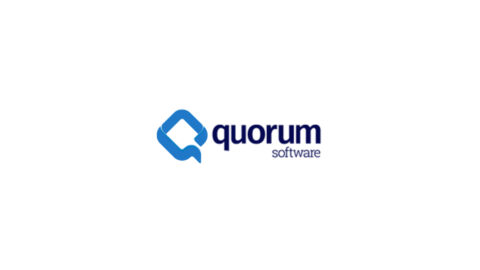
At Quorum’s annual customer conference, PwC hosted a panel discussion on how exploration and production companies can make better use of field data to drive operational decisions. The audience was a mix of business and technology leaders at E&P companies from across the United States and Canada. Panel members included Robert Stephens from PwC, Greg Andersen from Mewbourne Oil, and James Morley from Quorum Software.
The session kicked off with discussions around dashboards, analytics, and artificial intelligence. However, once the audience joined in, another topic quickly became the focus: Culture. Session-goers wanted to talk about how culture can be the biggest roadblock to adopting new technology for making data-driven decisions.
So how can company culture make or break your digital transformation?
In this blog, we will cover the top 3 cultural challenges raised in our panel discussion and the real-world examples shared by the group for how you can overcome them.
After helping hundreds of E&P companies operate more efficiently through better well lifecycle reporting, panel member James Morley uncovered a trend across companies who were slow to reap the benefits of digital tools. Engineers did not trust the data being reported. Instead, they spend large parts of the day meticulously maintaining Excel spreadsheets that live outside of the company’s database. These spreadsheets are siloed troughs of information that are time consuming and error prone, and further the proliferation of bad data that the engineers already feared initially.
Solution: Exception Handling and Company-Wide Dashboards
For any applications that collect field data, there must be workflows in place to allow data-consumers to find and edit bad data easily. Exception dashboards can help with this by flagging values outside normal parameters set by your company.

One attendee shared how their company made an operational performance dashboard accessible to everyone in the company. The dashboard could even be sorted by rig or crew to see how a specific team was performing. This spurred competition between engineers and kept everyone hyper-focused on data quality.

One audience member mentioned that his field pumpers have been working their respective areas for over 30 years and are resistant to changing their routine. Anytime he tries to introduce new technology for data collection, they either don’t use it or find workarounds, such as having their wives enter the data at home after completing their route.
Solution: Field-Friendly Support
We all expect our business apps to look and function the same as the apps we use in our personal lives. By selecting software with an eye towards user experience, you can give yourself a head start to better field adoption.

Software vendors are quickly adopting a support model centered around “customer success”. This model gives each customer a dedicated resource to provide one-on-one training, technical support, and best-practice consulting. This reduces the “fear factor” with new technology because it provides a familiar face to call when issues arise. No IT-support phone menus or robo-support, just real people helping to solve problems.

Attracting and keeping young talent was a hot topic of discussion among COO’s in the room. As Robert Stephens from PWC described, “for an industry that provides plenty of interesting and new engineering challenges, we don’t do a good job marketing that to the younger job force.” The same goes for adopting digital technologies to address the engineering challenges. As the great crew change continues, companies need effective ways to transfer that wealth of experiential knowledge in digital form and disburse it throughout the organization.
Solution: Create Super-Users
By now, we are all used to any information we need being a quick Google away. The new generation of oil and gas professionals expect this same accessibility to corporate data. Being able to provide quick and easy access to data in a workable format allows operations teams to analyze operations autonomously.


Do your best to raise the profile of super-users within the company and reward team members who fully adopt the new technology. You can take this a step further by extending reverse mentorship opportunities for younger employees to coach the older generation on using new technology to make their jobs easier.

We are all aware that the digial transformation is here and most companies are taking steps to embrace the technology advances our industry has made. When it comes to choosing software and rolling it out to your team, we encourage you to consider the cultural factors that might hinder or accelerate the adoption of your new tools.
At Quorum Software, we strive to deliver tools that make our customers’ everyday work easier and more efficient. Whether it’s development, implementation, or support, we know that people are at the heart of any technology advancements made in the oil and gas industry. To learn more about the software shown in this blog, check out our Managing by Exception webinar with production expert, Brett Hume.
#Ways #Company #Culture #Block #Digital #Transformation
Tags: Block Coastal Flow Coastal Flow Measurements Coastalflow Company Culture digital Transformation Ways







